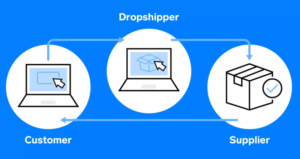You’ve likely heard of dropshipping, but are you familiar with its basics? Dropshipping is an online business that allows you to sell a dropshipper. Dropshipping companies do not require a warehouse, unlike traditional retail businesses. Instead, the supplier will handle the logistics. After you place your order, you can ship the products. Focus on growing your business and selling more products, which will increase your profit margins. You can take Full time Filmmaker Course and learn more about dropshipping.

Dropshipping allows you to sell any product that you want. It is a business model that doesn’t require you to buy inventory or manage a warehouse. You can also start your own business for very little money. What’s the best part? Dropshipping can be done from anywhere in the world, on any computer. Dropshipping comes with a cost. Although the profit margins of dropshipping are small, you will still benefit from the knowledge and connections of reputable drop shippers.
Dropshipping has many benefits. Dropshipping offers many benefits, including lower overhead, reduced capital requirements, and greater flexibility. Dropshipping allows you to quickly test new products and avoid investing in infrastructure or bulk orders. Dropshippers can scale your business from a small online shop to a large empire. Even though the business model is still very young, it’s evident that this industry has plenty of growth potential.
Dropshipping is a great way to know your market and what they are willing to pay. There are many products available on the market. However, it can be hard to identify a niche and build a brand. It is important to think about your business to avoid these pitfalls. Think about the products that you will be selling. Before you commit to large quantities, it is possible to start small with samples of each product.
Traditional supply chains require that you purchase the products upfront and then fulfill them from stock. This creates a lot of overhead in inventory, warehousing and labor, and packaging. Dropshipping, however, eliminates this hassle. Dropshipping eliminates the need to stock inventory. Instead, you can simply forward orders directly to your vendor. Your supplier will pick up the goods and pack them for you. Dropshipping companies may even be able to handle returns.
You won’t have to worry about maintaining inventory and packaging your products with dropshipping. Your supplier will handle returns and packaging for you. This makes running your e-commerce business much easier. You can focus on marketing instead of worrying about the logistics. Dropshipping is an excellent way to test new products and reduce your risk of running out of stock. So, what are the benefits of dropshipping? Read on to learn more about this innovative business model!
You pay a supplier for a product in dropshipping, and they fulfill it. The supplier may charge you a cut to cover the fulfillment costs, monthly or one-time signup fees. The difference between the price you charge your customer and the price the supplier charges is your profit. The supplier saves overhead and keeps his profit margin lower than you earn from fulfillment. Here are some advantages of dropshipping.
Dropshipping has its downsides. There is less profit margin, higher competition from other retailers, and poorer customer service. However, Dropshipping is easy, and it will be worth the effort. A PIM system will allow you to track inventory and keep your catalog current in real-time. Dropshipping is easy with a PIM system. It can keep track of all your clients and items.
In a traditional supply chain, the retailer purchases products in advance and stores them in inventory. They then ship them to the customer. The retailer then pays the vendor, who then sends them out. Some dropshippers even handle returns for the merchant. There are many advantages of dropshipping for eCommerce retailers. It reduces inventory costs and saves time and space. Moreover, it reduces the risk of returns. And, with this model, there’s no need to invest in any inventory, as your supplier will take care of the logistics of product fulfillment.